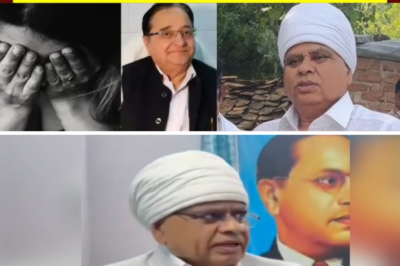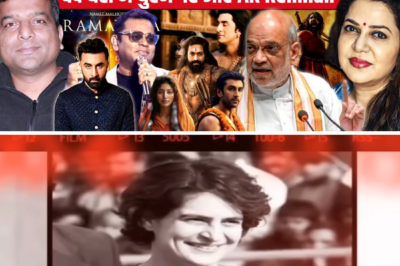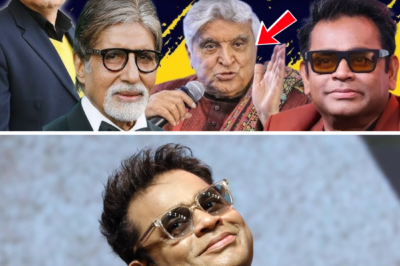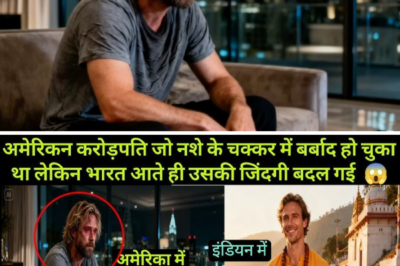The shocking murder of Raja Raghuvanshi, allegedly orchestrated by his wife Sonam Raghuvanshi, has taken a new turn as discussions about the “Manglik Dosh” (a perceived astrological defect) emerge as a possible motive. The case has captured national attention, with people debating the role of astrology, superstition, and social pressures in modern Indian marriages.
According to reports, both Sonam and her husband Raja were considered “Manglik”—a term in Indian astrology that suggests marital discord or even the untimely death of a spouse if certain planetary alignments are present in one’s horoscope. Some believe that the only way for a Manglik person to protect their future partner is to first marry another Manglik, or to undergo symbolic rituals such as marrying a tree or an animal before marrying a human.
In Sonam’s case, rumors have circulated that she could not directly marry her lover, Raj Kushwaha, because he was not Manglik. As a result, she allegedly married Raja Raghuvanshi first, and after his death, her “Manglik Dosh” would be considered nullified, allowing her to marry Raj without fear of harm befalling him. Such theories have become the subject of heated debates at street corners, in homes, and across social media.
Astrologers and family elders interviewed for this story explained that there are various traditional remedies for Manglik Dosh, including rituals at sacred temples, or symbolic marriages to trees or animals. However, many experts and rationalists label these beliefs as superstition, arguing that no ancient scripture prescribes violence or murder as a solution.
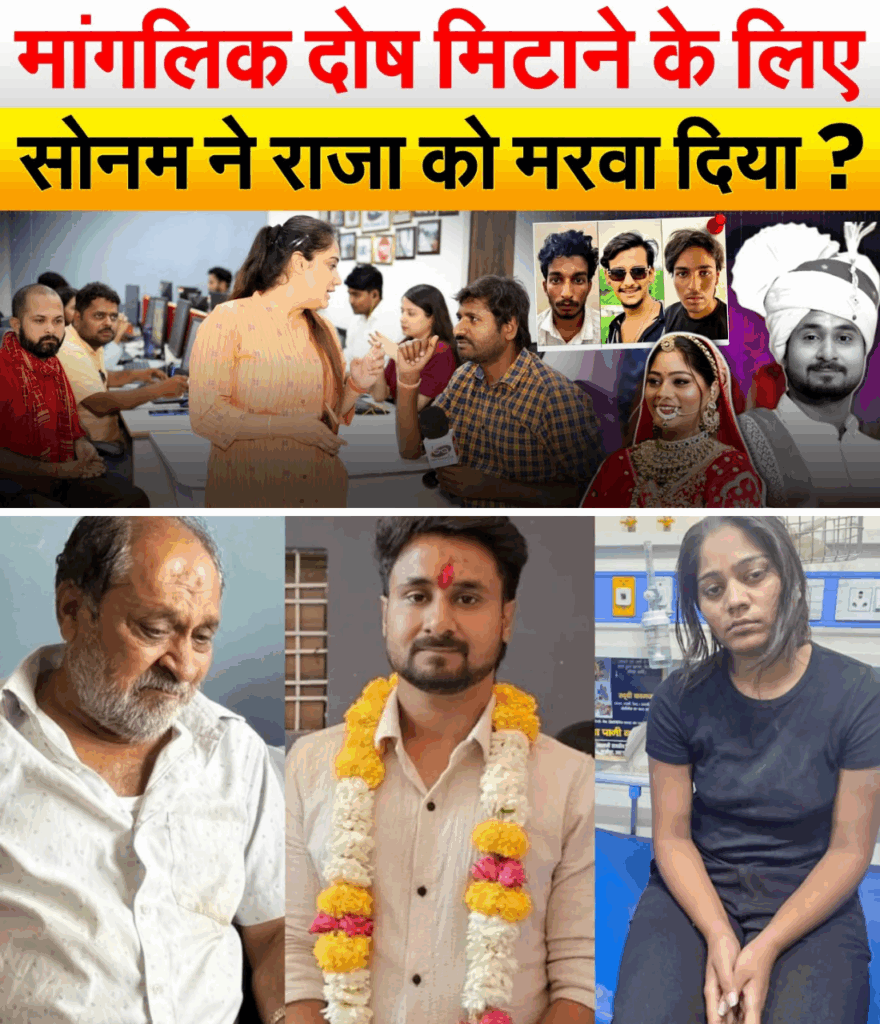
The case has also exposed loopholes in the narrative provided by Sonam. Investigations revealed inconsistencies in her statements, her rapid movement between cities after the murder, and her close contact with Raj Kushwaha. Notably, Raj even participated in Raja Raghuvanshi’s funeral rites, further complicating the story.
Social commentators point out that while Indian society often blames women for marital discord, the Sonam case is an example of how both men and women can be victims and perpetrators. “Not all women are the same. There are many wives in our country who would fight death itself to save their husbands,” said one commentator, highlighting the dangers of generalizing based on a single case.
There are also questions about why the marriage was arranged in the first place, despite known horoscope mismatches and Sonam’s alleged reluctance. Some speculate that family pressure and concern for social reputation played a role, especially after Sonam’s father suffered a heart attack before the wedding.
The case has also sparked conversations about the need for greater rationality and openness in marital decisions. “If someone is educated and intelligent enough to plan a murder, surely they can also have the courage to refuse a marriage they do not want,” remarked another observer.
As the investigation continues, further twists are expected. Authorities are also looking into reports that Sonam may be pregnant, which could add another layer of complexity to the case.
The Sonam Raghuvanshi case has become a focal point for broader discussions about astrology, gender roles, and the dangers of superstition in contemporary Indian society. Many hope that the case will serve as a wake-up call for families to prioritize consent and compatibility over outdated beliefs, and for the legal system to deliver justice without bias.
News
रेप पर गैर-जिम्मेदार बयान और राजनीति की गिरती संवेदनशीलता: सवाल नेताओं की सोच पर
रेप पर गैर-जिम्मेदार बयान और राजनीति की गिरती संवेदनशीलता: सवाल नेताओं की सोच पर भारत में यौन हिंसा जैसे गंभीर…
महिलाओं पर शर्मनाक बयान, विपक्ष की Dirty Politics बेनकाब | Phool Singh Baraiya | ST Hassan | N18V
रेप पर गैर-जिम्मेदार बयान और राजनीति की गिरती संवेदनशीलता: सवाल नेताओं की सोच पर भारत में यौन हिंसा जैसे गंभीर…
रामायण Film के बायकाट की तैयारी, घुटनों पर आए AR Rahman l Chandra Prakash l Anju Pankaj
ए.आर. रहमान के बयान पर बढ़ता विवाद: कला, पहचान और बदलता बॉलीवुड प्रसिद्ध संगीतकार ए. आर. रहमान द्वारा हाल ही…
भारत में A R Rahman जैसे एक नहीं अनेक हैं ! | Bollywood, Amitabh Bachchan | Global Harsh
ए. आर. रहमान का बयान: क्या वाकई बॉलीवुड में सांप्रदायिक भेदभाव है? हाल ही में मशहूर संगीतकार ए. आर. रहमान…
जब टूटना ही शुरुआत बन गया
जब टूटना ही शुरुआत बन गया कैलिफ़ोर्निया की सुबह हमेशा की तरह सुनहरी थी। सूरज की किरणें ऊँची इमारतों के…
अमेरिकन करोड़पति जो बिजनेस में बर्बाद हो चुका था लेकिन भारत बाते ही उसकी जिंदगी बदल गई थी 😱
जब टूटना ही शुरुआत बन गया कैलिफ़ोर्निया की सुबह हमेशा की तरह सुनहरी थी। सूरज की किरणें ऊँची इमारतों के…
End of content
No more pages to load

